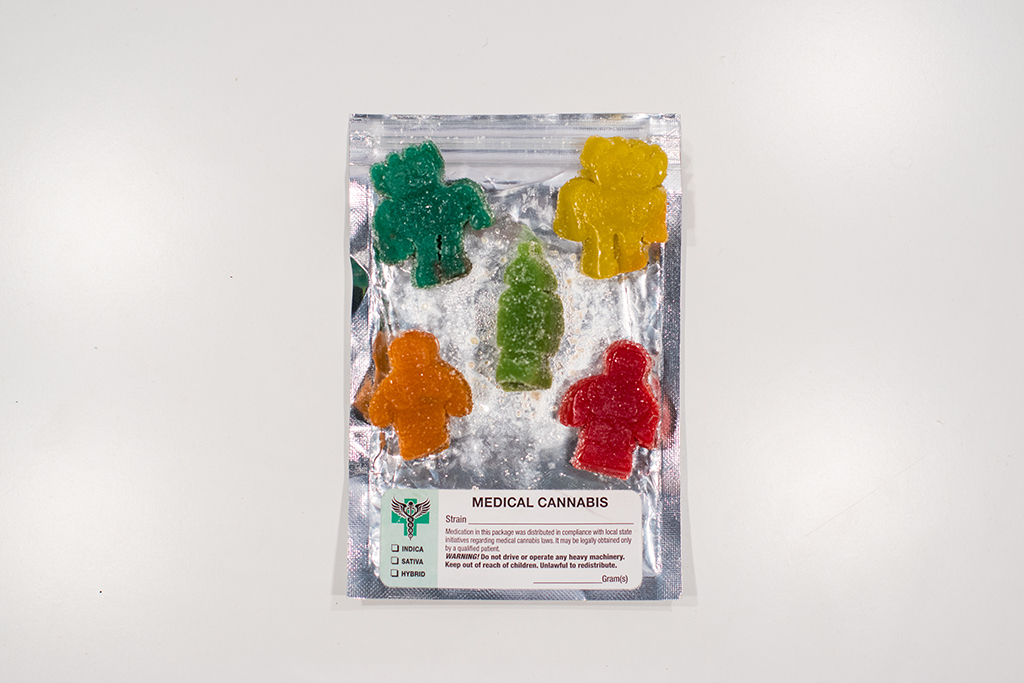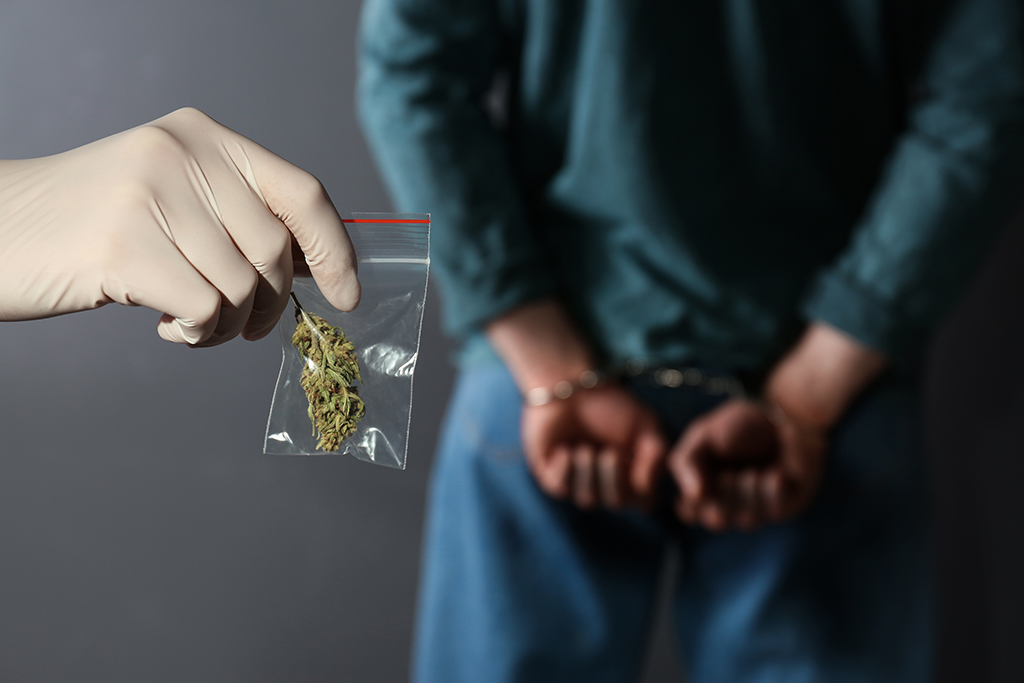
Reviewed By: Barbara Rexer, DSW, LCSW, LCADC, CCS, ICCS, DRCC
Marijuana edibles affect every person differently, but most people can expect them to stay in their system for 3-12 days. Here's what to know about edibles, including where they're legal and how they might affect you.
Table Of Contents
- Edibles stay in your system between 3-12 days
- By contrast, a single marijuana cigarette stays in your system about 3 days
- The exact length depends on how much you consume, and whether you’re an occasional or habitual user. It can take up to 30 days for marijuana to leave your system if you use regularly.
Have questions about addiction?
Call us at 855-430-9426 to speak with a recovery specialist.For many people, the idea of marijuana edibles is more appealing than smoking. Edibles produce a psychoactive effect without requiring the user to inhale smoke or vape into the lungs, which can make them feel safer. Additionally, many marijuana edibles are quite tasty — and in an increasing number of states they are also legal. However, edibles still carry health risks. If you or a loved one uses edibles, it’s important to understand how they work, including how they affect your mind and body.
What Are Marijuana Edibles?
Marijuana edibles are mainly food products that contain cannabinoids. However, the category can include other ingestible items, such as drinks, candies, or capsules. As edibles become legal, the variety of products has increased. For parents, it’s important to know that edibles can often look just like regular candy.

How Does the Body Process Edibles?
When a person consumes an edible, it works its way through the digestive system. As it’s digested, cannabis makes its way to the liver. There, the body converts delta-9 THC to 11-hydroxy THC. When this occurs, the effect is more psychoactive than what is experienced by smoking THC.
It is important to note that the THC in edibles does take longer to affect many people in comparison to smoking or vaping. Digestion takes a little time, causing a delay of up to two hours between consumption and feeling high. In comparison, inhaling the THC allows it to reach the bloodstream and have an impact as quickly as within five minutes. For people who typically smoke, this lag can lead to dangerous overconsumption.
Some candy or chocolate edibles may work more quickly than other types, such as baked goods. This is because the product can “melt” in your mouth, allowing the THC to pass through and reach the bloodstream with greater ease.
It’s also important to note that the high can last significantly longer with edibles compared to smoking. When smoked, people usually feel the effects for several hours. With edibles, a person may be high as long as 12 hours.
How Long Do Edibles Stay in Your System?
How long THC from marijuana edibles stays in your system depends on a few factors. First, the half-life of cannabis varies, usually falling somewhere in the three- to 12-day window. The exact length is impacted by the quantity consumed, as well as whether the person is a casual or habitual user. Habitual use leads to tolerance, requiring ever-increasing amounts to feel the same high.
Because it takes longer to process and metabolize edibles, they stay in the body longer than inhaled THC. For those who smoke marijuana, THC levels decline as soon as the high wears off. When consumed, it can take about a day to see a reduction in THC levels.
Habitual users may have THC in their system from edibles for a month or longer. However, casual users may rid it from their system in as little as one to two weeks, depending on the amount of THC consumed. Read more about how long different drugs stay in your system.
Do Edibles Show Up on Drug Tests?
Yes, THC from edibles will show up on a drug test. Ingesting, rather than smoking THC doesn’t change the fact it is entering your system. In fact, because of the way the body processes edibles, a drug test may detect THC levels for a much longer period of time. Urine, hair, blood, saliva, and sweat tests can all detect ingested THC. Here’s a timeline for each kind of test:
- Blood: 3-4 hours
- Saliva: 24-72 hours
- Urine: 3-30 days
- Hair: Up to 90 days
Have questions about addiction?
Call us at 855-430-9426 to speak with a recovery specialist.
Where Are Edibles Legal?
New states approve medical or decriminalized marijuana use every year. The following states and the District of Columbia have legalized at least medicinal use:
- Alaska
- Arizona (medical only)
- Arkansas (medical only)
- California
- Colorado
- Connecticut
- Delaware
- Florida (medical only)
- Hawaii
- Illinois
- Louisiana (medical only)
- Maine
- Maryland
- Massachusetts
- Michigan
- Missouri
- Montana (medical only)
- Nevada
- New Hampshire (medical only)
- New Jersey (medical only)
- New Mexico
- New York
- North Dakota
- Ohio
- Oklahoma (medical only)
- Oregon
- Pennsylvania (medical only)
- Rhode Island
- Utah (medical only)
- Vermont
- Washington
- West Virginia (medical only)
Some states where marijuana is legal don’t have specific laws regarding edibles. Others maintain that edibles are illegal. In situations where the law is vague, it’s often best to err on the side of caution and assume they aren’t permitted.
Why Do People Say Edibles Aren’t Safe?
One of the biggest concerns about edibles is the psychoactive effect. There is a risk for cannabis-induced psychosis, which can cause hallucinations, confusion, and paranoia. Additionally, some experience panic attacks or hyperemesis syndrome after consuming edibles.
Moreover, for some older adults, cannabis in high doses could lead to a cardiac event or issue. Mainly, this is due to the impact of THC on the cardiovascular system. They could also be a greater risk for cognitive impairments, coordination issues, or negative drug interactions. In pregnant women, THC can reach the baby’s brain, potentially impacting its development.
It’s also hard to gauge the strength of an edible before it’s consumed. This leads some to misjudge the power of the dose, causing them to have a stronger effect than they wanted. Finally, THC is potentially addictive. A person can become addicted to edibles as easily as they can other forms of marijuana. Finally, edibles can be laced with dangerous drugs like K2/Spice.
Because of the addictive nature and potential risks associated with edibles, it’s important to seek treatment if marijuana use in any form has become a habit. Call us to learn more about options for marijuana addiction treatment, including flexible outpatient programs that allow you to incorporate treatment into your life while you reside at home.
Recent News About Marijuana Edibles
The legal landscape around marijuana is constantly evolving. Here are some of the latest developments:
Missouri Starts Selling Medical Marijuana
In October 2020, two dispensaries in St. Louis County became the first places to buy legal weed in Missouri. At the time of opening, only cannabis flower buds were allowed. The dispensaries, both owned by N’Bliss, expect to offer edibles and other products in the future, the News Leader reported. The state becomes the 40th to approve legal marijuana use in some fashion. Missouri also decriminalized recreational use.
Florida Legalizes Medical Marijuana Edibles
In August, Florida quietly legalized edibles for medicinal uses, a year after the legislature approved smoking marijuana for the same purposes. Edibles aren’t likely to hit shelves just yet. As the Tampa Bay Times reported, the state will issue variances licensed Medical Marijuana Treatment Centers before products become available. According to the Department of Health, about 400,000 patients will become eligible.
Florida has added edibles in part to provide an option to patients to who prefer not to smoke or have difficulty swallowing pills. As Florida Agriculture Commissioner Nikki Fried told the News Service of Florida, “Every single patient is different, as far as how their body reacts to this medicine…This is another alternative to so many patients who may need their medicine but need it in alternative forms.”
Montana Considers Legal Weed
Montana residents can already buy medical marijuana, but the tourism-reliant state is considering even more relaxed measures. An initiative on the 2020 ballot would make recreational marijuana legal throughout the state. Under the proposed law, the legal age would be set at 21.
Have questions about addiction?
Chat with one of our recovery specialists now.

Written By: Sprout Editorial Team
The Sprout Health Group editorial team is passionate about addiction treatment, recovery and mental health issues. Every article is expert-reviewed.


